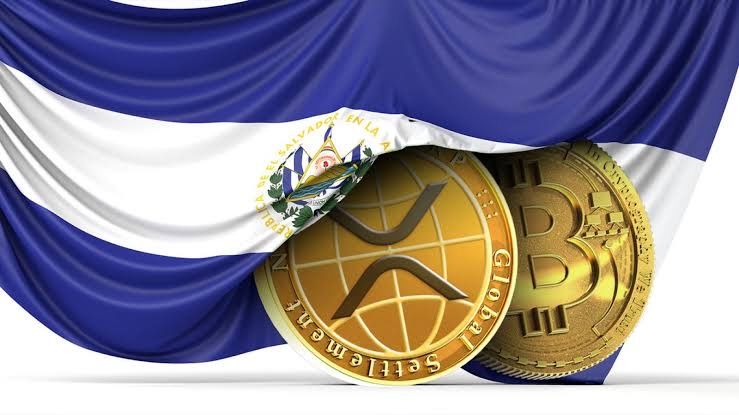Ripple's Former Director Advocates for XRP Adoption in El Salvador, Citing Technological Superiority Over Bitcoin
Matt Hamilton, a former director at Ripple Labs Inc, has urged crypto users in El Salvador to consider adopting XRP over Bitcoin. Hamilton's recommendation is rooted in his belief that XRP's superior technology and scalability make it a more feasible solution for a developing nation like

Matt Hamilton, a former director at Ripple Labs Inc, has urged crypto users in El Salvador to consider adopting XRP over Bitcoin. Hamilton's recommendation is rooted in his belief that XRP's superior technology and scalability make it a more feasible solution for a developing nation like El Salvador.
Bitcoin's current limitations have been a topic of heated discussion, particularly as its high adoption rate has seemingly led to increased transaction fees. For instance, a recent incident in El Salvador saw an individual charged $20 in fees for withdrawing just $100 during a Bitcoin transaction. This fee, as observed by journalist Marce Romero, is significant for a country where the average salary ranges between $300 and $350.
Such financial strain has led Romero to warn against the rising popularity of Non-Fungible Tokens (NFTs) and memecoins, highlighting the potentially damaging real-world impact of high fees on users in economically vulnerable positions.
Furthermore, as Bitcoin's popularity continues to surge, the network is increasingly overwhelmed, leading to longer transaction times and inflated fees. This issue, while profitable for miners, presents a substantial barrier to entry for newcomers to the cryptocurrency world.
El Salvador's adoption of Bitcoin was originally proposed as a strategy to broaden financial inclusion and reduce reliance on the U.S. dollar. Advocates of this proposal argue that Bitcoin can help lower transaction costs and expedite cross-border payments. However, critics have raised concerns about Bitcoin's volatility, suggesting it could pose significant risks to the country's economy.
As it stands, it remains uncertain whether XRP can outperform Bitcoin in terms of technology and scalability. Bitcoin currently trades at $28,174.90, with XRP trailing at $0.4314.
Technologically, XRP does boast notable advantages over Bitcoin, particularly in transaction speed and cost. With its capacity to process significantly more transactions per second at a lower cost, XRP may be more attractive to major institutions and payment providers requiring fast, cost-efficient transaction solutions.
Nevertheless, Bitcoin's extensive history and widespread network of users and developers are factors that cannot be overlooked. Known for its security and decentralization, Bitcoin's reputation as a reliable store of value is a significant strength.
However, XRP faces its own set of challenges, including regulatory uncertainty and an ongoing case with the U.S. Securities and Exchange Commission (SEC). These issues could potentially impact the long-term adoption and use of XRP.
In conclusion, various factors will dictate the adoption and success of XRP, including market demand, regulatory environments, and technological advancements. The future will reveal whether El Salvador and similar nations will heed Hamilton's advice and pivot towards cryptocurrencies like XRP for their scalability and technological superiority.




